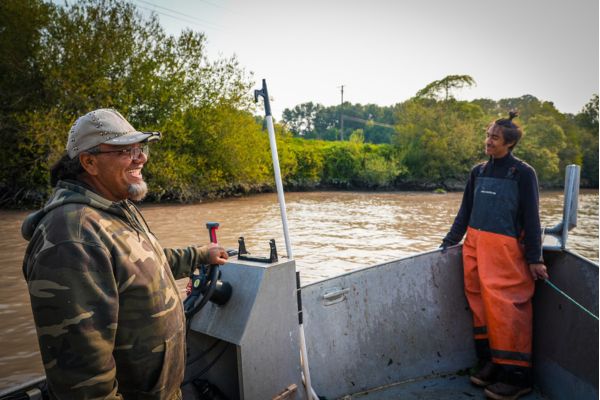
- Details
- By Kaili Berg
The Puyallup Tribe of Indians received a $7.5 million grant to remove fish passage barriers in the Puyallup River to improve in-stream habitats for fish tributaries.
As well, the nearby Port of Tacoma received a $2 million grant to rehabilitate the failing Wapato Creek culvert.
The funding was allocated from the Department of Transportation’s Federal Highway Administration’s (FHWA) Culvert Aquatic Organism Passage Program (AOP), championed by U.S Representatives Derek Kilmer (D) and Marilyn Strickland (D). It is the first federal program devoted entirely to culvert restoration, according to a press release.
“The tribe has been actively working on fish restoration in this watershed. So this is just one more piece of the restoration puzzle that’s being put back together to improve habitat quality, natural function and provide an overall improvement to the fisheries environment,” Puyallup Tribe Fisheries Program Director Russ Ladley said in an article from Puyallup Tribal News.
The AOP grants are part of an announcement by FHWA of $196 million going to 56 Tribal, state, and local governments that will fix or remove 169 culvert barriers to improve fish passage. Outdated culverts and other infrastructure can cause roads to flood and severely restrict or altogether block fish passage, which is key to the health of fish runs and important to fishing and the health of Tribal communities.
The Puyallup Tribe’s project will replace outdated culverts on Swan, Squally, Clear, and Canyon creeks. The Fall Chinook Salmon, Coho Salmon, Chum Salmon, Steelhead Trout, Bull Trout, and other resident trout populations are expected to benefit from the removal of the barriers, according to the press release.
“Some of the culverts that are going to be replaced are over 100 years old. They don’t meet today’s scientific criteria for fish passage, and we’re going to replace them with actual bridges. It opens up the stream channel tremendously,” said Ladley in an article from Puyallup Tribal News.
Additional grant recipients include $4.2 million for the Jamestown S’Klallam Tribe that will be used to replace two complete fish passage barriers on Chicken Coop Creek, located in Clallam County. The creek is the heart of traditional hunting, fishing, and gathering areas for the S’Klallam People, and the project will restore access to four miles of spawning grounds and habitat.
More Stories Like This
Rappahannock Tribe Challenges 9M-Gallon Water PlanFeds release draft long-term plans for Colorado River management
Apache Leader Walks 60 Miles to Court Hearing That Will Decide Fate of Sacred Oak Flat
Rappahannock Tribe Raises Sovereignty and Environmental Concerns Over Caroline County Water Permit
Klamath Indigenous Land Trust Purchases 10,000 Acres as Salmon Return
Help us defend tribal sovereignty.
At Native News Online, our mission is rooted in telling the stories that strengthen sovereignty and uplift Indigenous voices — not just at year’s end, but every single day.
Because of your generosity last year, we were able to keep our reporters on the ground in tribal communities, at national gatherings and in the halls of Congress — covering the issues that matter most to Indian Country: sovereignty, culture, education, health and economic opportunity.
That support sustained us through a tough year in 2025. Now, as we look to the year ahead, we need your help right now to ensure warrior journalism remains strong — reporting that defends tribal sovereignty, amplifies Native truth, and holds power accountable.
 The stakes couldn't be higher. Your support keeps Native voices heard, Native stories told and Native sovereignty defended.
The stakes couldn't be higher. Your support keeps Native voices heard, Native stories told and Native sovereignty defended.
Stand with Warrior Journalism today.
Levi Rickert (Potawatomi), Editor & Publisher


